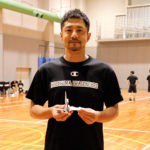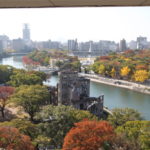Hiroshima Peace Institute, Hiroshima City University
— A Wisdom Hub for Thinking About Peace From Hiroshima
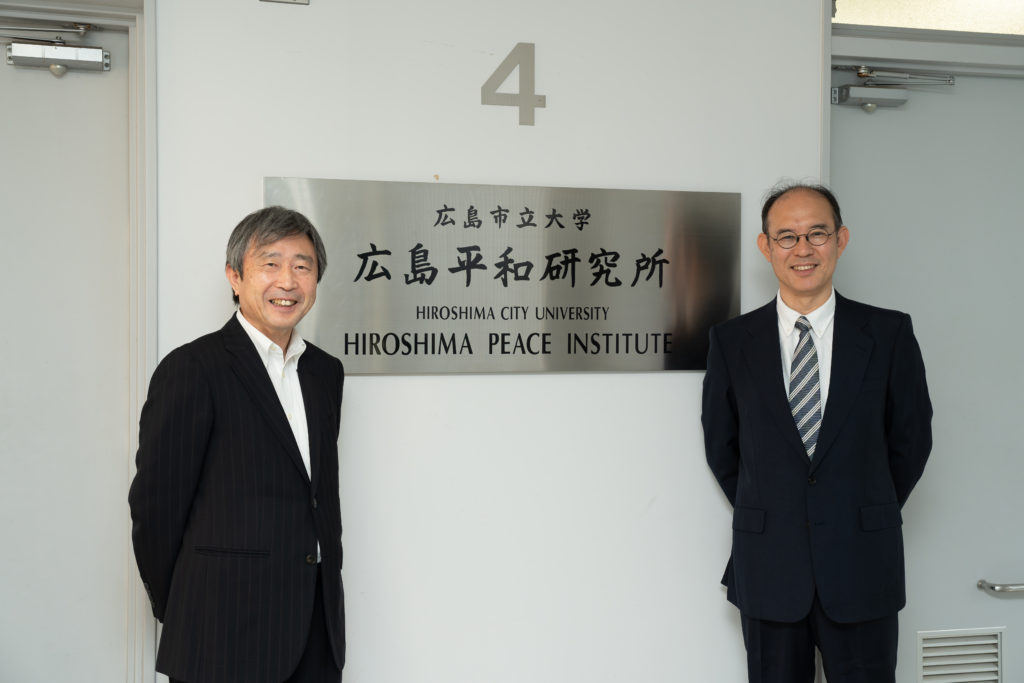
The Hiroshima Peace Institute is a research institute affiliated with Hiroshima City University, established in 1998. Its activities can be divided into three main categories: Peace Research based on Hiroshima’s experience as the first city to fall victim to nuclear weapons and its rise from the ashes; Education for graduate students in the Graduate School of Peace Studies; and Community and Social Contribution to disseminate its research to the local community and the rest of Japan and the world.
According to its director and specially appointed professor, Oshiba Ryo, about one-third of the institute’s researchers are foreign nationals from the United States, Singapore, China, South Korea, and other countries. In addition to international relations theory, Professor Oshiba’s diverse research fields include constitutional law, international law, the history of science and technology, modern Japanese history, and historical sociology.
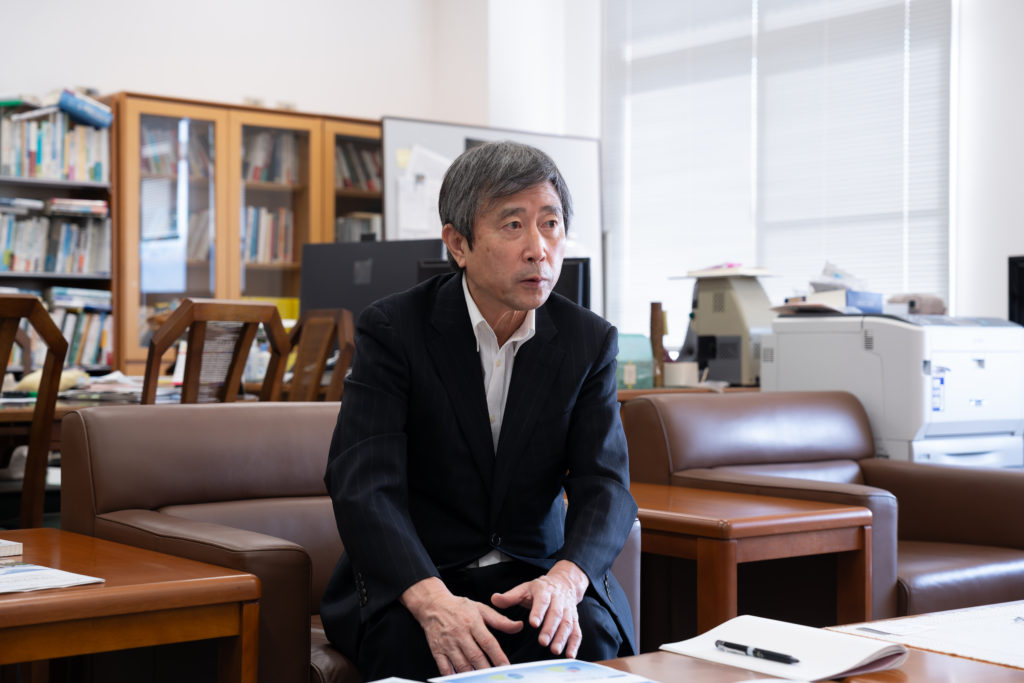
Oshiba Ryo, director and specially appointed professor of the Hiroshima Peace Institute. He conducts research on international politics.
“Every faculty member at our institute has their own diverse approach, which is very stimulating. There is great significance in discussing peace after learning from the voices of those who actually experienced the atomic bombing in Hiroshima and hearing their thoughts on peace. Fieldwork is crucial in academia, and Hiroshima is a key field for peace studies.” (Prof. Oshiba)
Why did the US drop atomic bombs on Hiroshima and Nagasaki? What horrors did these bombings inflict on the cities’ citizens and on humanity? Prof. Oshiba believes that a thorough study of these issues using approaches such as international law, international relations, sociology, and history is essential to passing on the memory and experience of the atomic bombings, preventing the outbreak of future wars, and eliminating nuclear weapons. Meanwhile, Okimura Tadashi, a professor from the same institute who specializes in climate change research, believes there may be similarities between humanity’s inability to stop the looming unprecedented crisis called global warming and our inability to stop the absolute evil that is war.
“Despite the diversity of our research fields and approaches, we all share a common interest. Now, how do we pass on the memory of the atomic bombings and link it to the abolition of nuclear weapons? I believe we must think about peace from Hiroshima and communicate it to the world.” (Prof. Oshiba)
Many of the institute’s graduate students have diverse social experiences and aspire to study peace properly, including high school teachers who teach peace to children in Hiroshima, former employees of JICA and other government agencies, local government officials, and journalists. It also has many international students from the US, China, Korea, Myanmar, and other countries, bringing their own perspectives to the discussions.
“We learn a lot from the students’ discussions. I feel great significance in having a place where we can discuss peace in the same capacity as students from different countries.” (Prof. Okimura)
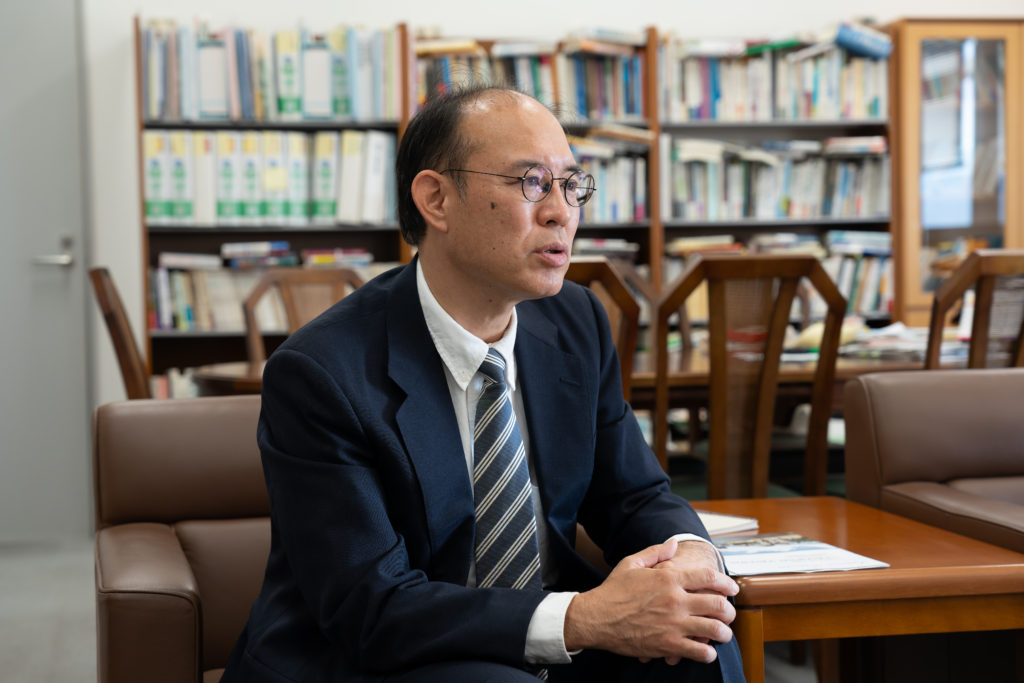
Professor Okimura from the Hiroshima Peace Institute. He conducts research on international environmental issues.
The institute’s research results are presented at international symposiums and research forums and are actively disseminated domestically and internationally through publications such as “Hiroshima Peace Studies” and “Hiroshima Peace Institute Booklet” and through websites and newsletters. The institute also held a free online series of public lectures on “Thinking About the Russo-Ukrainian War from Hiroshima” from October 20th to November 23rd, 2023. The lectures examined the Russo-Ukrainian War and nuclear issues from different perspectives, not only by professors affiliated with the Hiroshima Peace Institute but also by researchers invited from other universities.
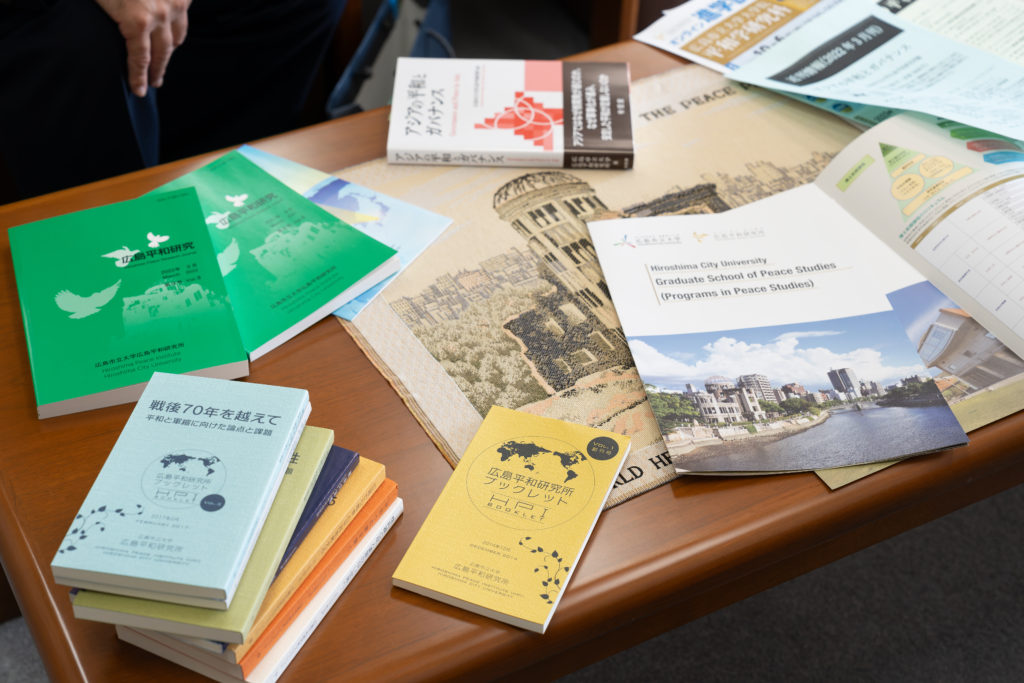
A number of publications that have been issued by the Hiroshima Peace Institute
The Hiroshima Peace Institute is also actively involved in short-term visitor programs that invite young researchers from abroad to visit Hiroshima for a certain period, where they can engage in discussions with the students and researchers at the institute. Many overseas researchers apparently return home greatly inspired.
“I would be happy if our research in Hiroshima could sow seeds among students and overseas researchers, which would sprout and blossom worldwide. And we hope that we can keep the memory of the atomic bombing of Hiroshima alive for many generations to come,” says Prof. Okimura.
The Hiroshima Peace Institute will continue to be a hub of wisdom carrying the history and thoughts of the people of Hiroshima. The Hiroshima Peace Institute’s mission continues—from Hiroshima to the world.
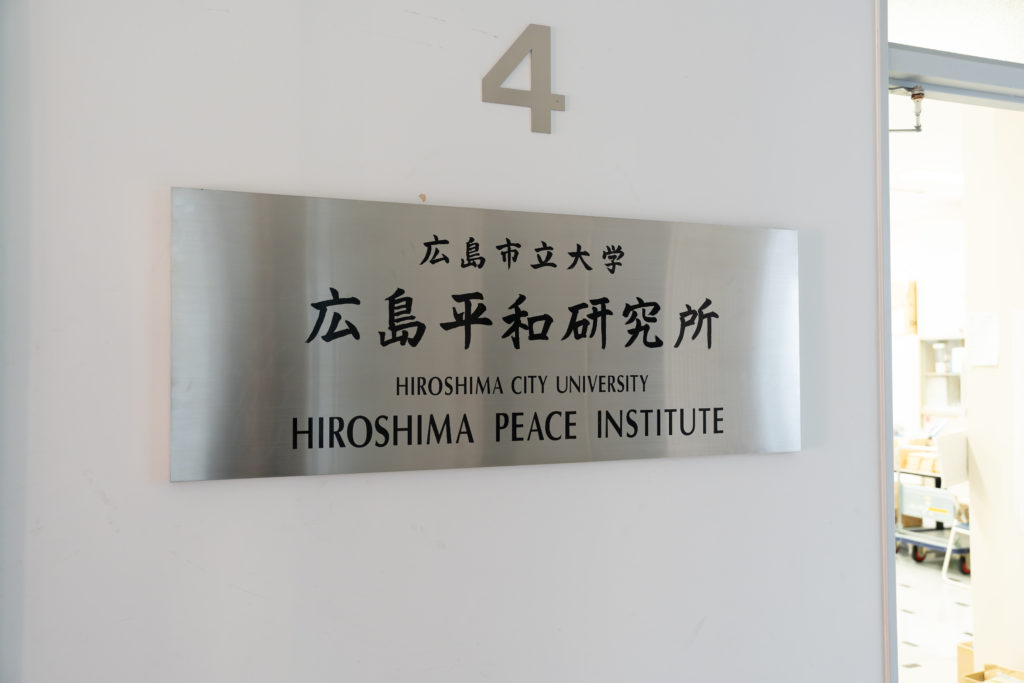
Hiroshima Peace Institute
Hiroshima City University, 3 -4-1 Ozukahigashi, Asaminami Ward, Hiroshima, 731-3194, Japan
082-830-1811
https://www.peace.hiroshima-cu.ac.jp/
Tags associated with this article





